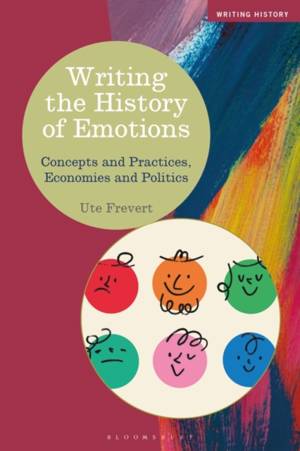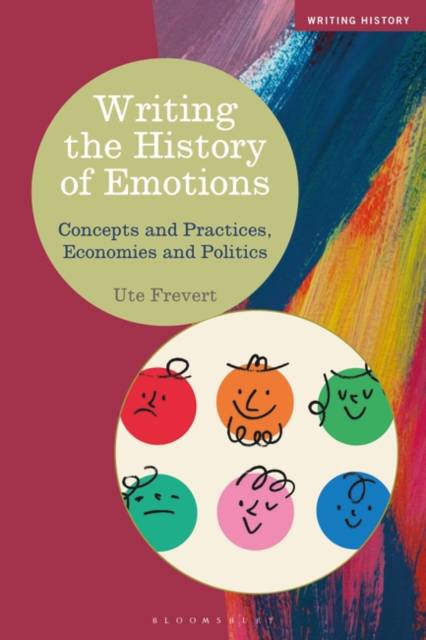
- Afhalen na 1 uur in een winkel met voorraad
- Gratis thuislevering in België vanaf € 30
- Ruim aanbod met 7 miljoen producten
- Afhalen na 1 uur in een winkel met voorraad
- Gratis thuislevering in België vanaf € 30
- Ruim aanbod met 7 miljoen producten
Zoeken
€ 186,95
+ 373 punten
Uitvoering
Omschrijving
Emotions make history, and they have a history.They influence historical events such as revolutions, riots and protest movements. At the same time, they are shaped by historical experiences tied to family upbringing, educational and cultural institutions, work and the home.
Writing the History of Emotions shows how emotions like love, trust, honour, pride, shame, empathy and greed have impacted historical change since the 18th century and were themselves dependent on social, political and economic environments. Importantly, this book provides a timely exploration of racialized, gendered, class-based notions of emotions. This exciting addition to Bloomsbury's successful Writing Historyseries analyses how emotions matter in and to history, and how they are themselves objects of history.
Here, leading scholar Ute Frevert eschews a traditional chronological history of emotions in favour of an innovative collection which transgresses time periods to illustrate the different emotional meanings one particular material object has had throughout history. This book sheds light on how emotions have been used, instrumentalised and manipulated both to propel and suspend democratic politics. In doing so, it opens a rich new avenue of research for the history of emotions.
Writing the History of Emotions shows how emotions like love, trust, honour, pride, shame, empathy and greed have impacted historical change since the 18th century and were themselves dependent on social, political and economic environments. Importantly, this book provides a timely exploration of racialized, gendered, class-based notions of emotions. This exciting addition to Bloomsbury's successful Writing Historyseries analyses how emotions matter in and to history, and how they are themselves objects of history.
Here, leading scholar Ute Frevert eschews a traditional chronological history of emotions in favour of an innovative collection which transgresses time periods to illustrate the different emotional meanings one particular material object has had throughout history. This book sheds light on how emotions have been used, instrumentalised and manipulated both to propel and suspend democratic politics. In doing so, it opens a rich new avenue of research for the history of emotions.
Specificaties
Betrokkenen
- Auteur(s):
- Uitgeverij:
Inhoud
- Aantal bladzijden:
- 344
- Taal:
- Engels
- Reeks:
Eigenschappen
- Productcode (EAN):
- 9781350345881
- Verschijningsdatum:
- 21/03/2024
- Uitvoering:
- Hardcover
- Formaat:
- Genaaid
- Afmetingen:
- 156 mm x 234 mm
- Gewicht:
- 653 g

Alleen bij Standaard Boekhandel
+ 373 punten op je klantenkaart van Standaard Boekhandel
Beoordelingen
We publiceren alleen reviews die voldoen aan de voorwaarden voor reviews. Bekijk onze voorwaarden voor reviews.







